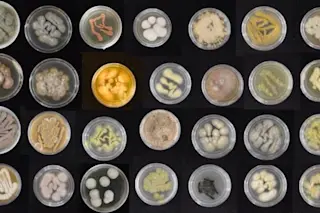Medieval alchemists sought to literally turn non-valuable substances into gold. Now some scientists have discovered a figurative equivalent method to transform sewage sludge into food for animals and fuel for automobiles, according to research published in Nature Water.
Sewage sludge — the thick, organic, and, yes, smelly wastewater treatment byproduct— represents a massive and costly problem. The world’s cities produce over 100 million tons of the stinky substance. It often clogs treatment plants and costs billions to process. More than 100 million tons of dry sludge accumulates globally every year. This is especially problematic in “megacities.” Their combination of massive population and density renders a haste to make something from this waste.
“The ever-increasing generation of sewage sludge in megacities places a substantial burden on waste treatment systems,” according to the paper. “The complex and resilient structure of sludge renders conventional pretreatment and biological reclamation methods time-consuming, energy-inefficient and environmentally ...














